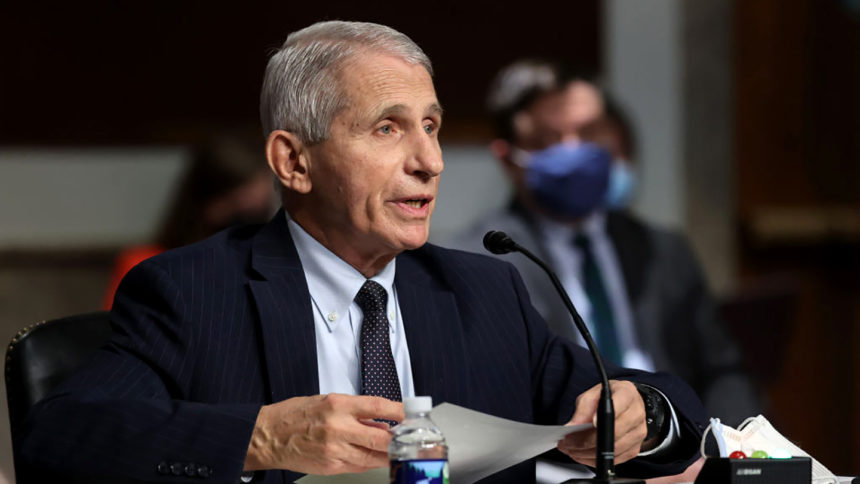
Federal health officials may reduce the recommended 10-day isolation period for Americans — and especially healthcare workers — who are fully vaccinated, test positive for SARS-CoV-2 infection and don’t have symptoms, according to a top health official.
Although no decisions have yet been made, officials with the Centers for Disease Control and Prevention are considering the possibility in response to spiking COVID-19 infections and the rapid spread of the omicron variant, Anthony Fauci, M.D., the White House’s top medical adviser, told CNN Tuesday.
Within a matter of weeks, omicron has become the dominant variant strain in the U.S., now accounting for 73% of all U.S. cases, CDC estimates. Healthcare facilities will need all hands on deck to respond to expected local surges, and a shorter isolation period after testing positive could help symptomless care providers return to work sooner, Fauci said. He foresees an earlier return to work combined with adherence to COVID-19 source control recommendations such as wearing an N95 mask.
Nursing home challenges
The news comes as a large number of nursing homes deal with low staffing rates and some cope with the fluctuating waves of infections. Many are now attempting to organize booster vaccine clinics to further protect residents.
The variant has been shown to escape the protection of currently authorized vaccines, but a booster shot should help increase vaccine protection, researchers have found. But older adults remain at relatively higher risk for breakthrough infections and severe cases.
Some long-term care facilities in states where the virus is concentrated are already seeing cases due both to the delta and omicron variants. Cases due to omicron are currently concentrated in certain areas of the United States. These include New England (where omicron accounts for 90% of cases), the Great Lakes, the Pacific Northwest and the Southeast.
Maryland, for example, recently ordered its nursing homes to offer monoclonal antibodies and other treatments to all residents at the first sign of a COVID-19 outbreak. The directive is a response to an expected increase in cases. The state’s hospitals already are nearing capacity as infections from both variants increase and staffing levels are low, according to local news sources.
Maryland’s Gov. Larry Hogan (R), tested positive for COVID-19 himself soon after announcing the order.




